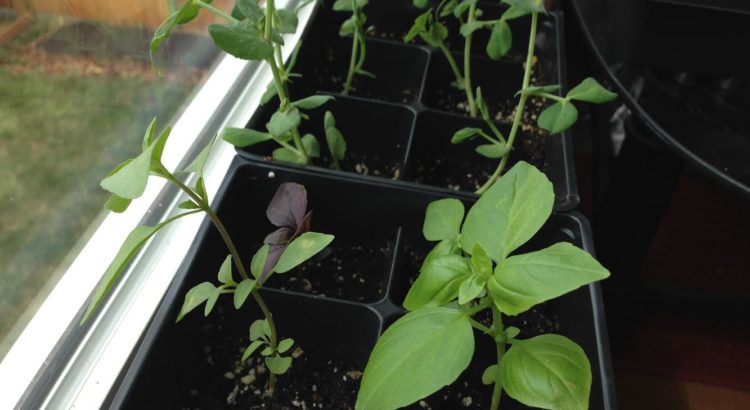In my post “How Eczema Made Me a Granola Mom“, I talked about how the journey of solving my children’s eczema changed me. Among the things I became convicted about was the importance of knowing where our food comes from and how it is processed before it gets to our table. I set out initially to understand if detergents had been used in the processing of our food, but soon realized I could not then ignore whether pesticides or herbicides had been used too.
Our Previously Haphazard Approach to Gardening
In our quest to better understand and have control over how our food was grown and processed, we established relationships with organic farmers to source some of our food, including buying a share in a community-sponsored agriculture (CSA) vegetable farm for a season. My husband and I also started trying to grow our own vegetables in the existing garden plot in our yard, and to more intentionally harvest from an existing apple tree and raspberry bushes. We had some minor success with our vegetables and fruit, but we were far from being very informed or intentional in our gardening. I felt that the success we did have was not directly related to anything special we had done, since we tended to have a “plant, mostly forget, try to remember to water, and see what shows up at the end of the season” approach — what experts would kindly refer to as “low input” gardening. Over the last few years, this approach has increasingly meant that we pretty much only plant potatoes that need very little preparation and ongoing care, and that whatever we harvest is “bonus”, meaning that we don’t rely on that harvest to actually feed ourselves to any great extent! And more importantly, I was pretty sure that in the cases where we were unsuccessful — such as the puny, few, and not-very-tasty beets we harvested the first year, or the peas that were overcompeted by potato plants and wilted within a few weeks of sprouting — were surely a direct result of something we had not done right.
This haphazard approach to gardening went on for a few years. My experience implementing solveeczema and all the related learning I’ve done tells me I am capable of processing large amounts of data and doing insane amounts of work if I am sufficiently motivated (or, as I was at the worst of my kids’ unrelenting eczema, feeling sufficiently desperate and hopeless). But, wading through reams of gardening how-to data from various sources, and trying to determine what advice works for our climate, preferences, desired vegetables and level of effort through trial-and-error was just not something I had much inclination to do. I asked some agriculturalists with the City if they had a “beginner gardener’s course” to hand-hold people through the how to’s, and they suggested I join the local horticultural society, attend meetings and ask pointed questions. In short: much more self-directed effort than I was willing to do to become a gardener, especially on the heels of what I had just finished implementing in detergent-removal and problem-solving for the eczema. So, my approach to gardening continued to be arbitrary and saddled with the nagging feeling of someday wanting to get more focused, intentional and informed.
Discovering Grow Food Calgary
In February, I found out about an immersive gardening program called Grow Food Calgary being launched in the spring. It is a collaboration between 3 women — all gardeners, 2 of whom are expert gardeners for whom horticulture is a professional endeavour. Their mission is to teach people how to be successful vegetable gardeners by walking with beginner gardeners through this year’s growing season (6 sessions, averaging one per month, from April to October). What I found attractive about this 7 month program is that it would give me the impetus and opportunity to actually work on my garden through the season with these access to these experts. I know from experience that if the course was just 6 classroom sessions over a week, I would have too much inertia to actually then apply my “head knowledge” to actively working on and expanding my existing garden.
My Newbie Gardening Journey to be Followed by CBC Radio
Just after my registration in the course, through a series of events I was connected to CBC’s The Homestretch radio program. They plan to follow my “newbie gardening” journey through the season.
Here is the first CBC radio segment that I was on, alongside Chelsie Anderson, one of the gardening experts and course leaders.
Taking a Detour to Blog about My Gardening Journey
I plan to blog about my journey here alongside of CBC’s check-ins on the radio. I don’t want to regurgitate what I am learning in my course on the blog per se, but rather reflect on the implications of what I am learning and talk about how it is being implemented in our garden. Blogging about gardening is a bit of a departure from my regular topics about eczema and food allergy, but I hope this will be an enjoyable and engaging detour!
Stay tuned for weekly updates of my gardening journey and links to subsequent CBC radio segments. Feel free to leave me comments and questions about this journey, too. Happy Spring!
